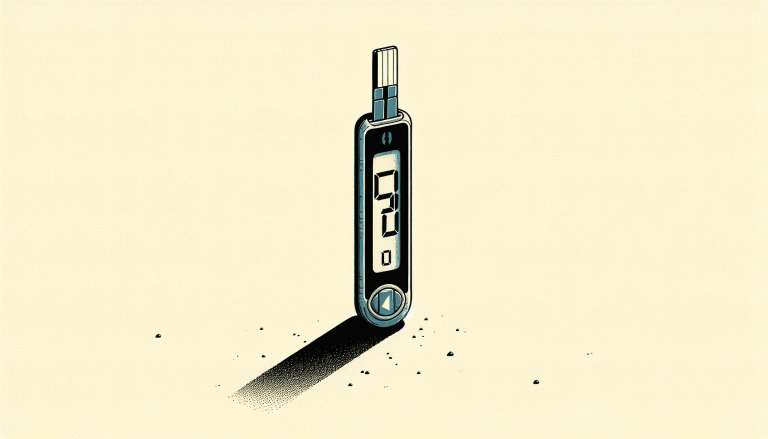What Do Antioxidants Do For The Body?
Have you ever wondered about the benefits of antioxidants for your body? In this article, we will explore the incredible impact that antioxidants have on your overall health and well-being. From promoting cellular health to reducing the risk of chronic diseases, antioxidants play a crucial role in keeping your body in top shape. So, buckle up and get ready to discover the fascinating world of antioxidants and how they can work wonders for your body.

What Are Antioxidants?
Definition of antioxidants
Antioxidants are compounds that help protect the body against damage caused by harmful molecules called free radicals. Free radicals are highly reactive molecules that can damage cells and contribute to various health problems, including chronic diseases. Antioxidants work by neutralizing these free radicals, preventing them from causing further damage.
Types of antioxidants
There are several different types of antioxidants, each with its own unique properties and functions. Some of the most common types of antioxidants include vitamins C and E, beta-carotene, lycopene, selenium, flavonoids, resveratrol, coenzyme Q10, and glutathione. Each of these antioxidants plays a specific role in protecting the body and maintaining overall health.
Sources of antioxidants
Antioxidants can be obtained from a variety of sources, making it easy to incorporate them into your diet. Fruits and vegetables, such as berries, broccoli, spinach, and tomatoes, are rich in antioxidants. Nuts and seeds, such as almonds and sunflower seeds, also contain significant amounts of antioxidants. Additionally, spices and herbs like turmeric and oregano, as well as dark chocolate, green tea, red wine, and certain types of fish and seafood, are excellent sources of antioxidants.
Importance of Antioxidants
Neutralizing free radicals
One of the primary functions of antioxidants is to neutralize free radicals in the body. Free radicals are unstable molecules that can cause damage to cells, leading to various health problems. By neutralizing these harmful molecules, antioxidants help protect against cell damage and the development of chronic diseases.
Reducing oxidative stress
Oxidative stress occurs when there is an imbalance between the production of free radicals and the body’s ability to neutralize them. This imbalance can lead to damage to cells, proteins, and DNA. Antioxidants play a crucial role in reducing oxidative stress by neutralizing excess free radicals and restoring balance to the body.
Preventing cell damage
Antioxidants help prevent cell damage by inhibiting the oxidation of molecules in the body. Oxidation is a chemical reaction that can cause cell damage and contribute to the development of diseases such as cancer, heart disease, and neurodegenerative disorders. By preventing oxidation, antioxidants help protect the cells and maintain their proper functioning.
Boosting immune system
Antioxidants also play a vital role in supporting a healthy immune system. By neutralizing free radicals and reducing oxidative stress, antioxidants help strengthen the immune system’s response to harmful pathogens and reduce the risk of infections. A strong immune system is crucial for overall health and well-being.
Health Benefits of Antioxidants
Reducing the risk of chronic diseases
Consuming an antioxidant-rich diet has been linked to a reduced risk of chronic diseases. Studies have shown that diets high in antioxidants are associated with a lower risk of conditions such as heart disease, cancer, diabetes, and neurodegenerative disorders. These powerful compounds help protect against cell damage and inflammation, both of which are key contributors to the development of chronic diseases.
Protecting against heart disease
Antioxidants, particularly vitamins C and E, have been shown to have protective effects against heart disease. They help reduce inflammation, lower blood pressure, improve blood vessel health, and prevent the oxidation of cholesterol, all of which are risk factors for heart disease. Including antioxidant-rich foods in your diet may help promote a healthy heart and reduce the risk of cardiovascular problems.
Lowering the risk of certain cancers
Several antioxidants, such as beta-carotene, lycopene, and flavonoids, have been found to have anticancer properties. These compounds help inhibit the growth of cancer cells, reduce the risk of cell mutations, and enhance the body’s natural defense mechanisms against cancerous cells. Consuming a diet rich in antioxidants may therefore lower the risk of certain types of cancer.
Promoting brain health
Antioxidants have been shown to play a role in maintaining brain health and cognitive function. They help protect brain cells from damage caused by free radicals and oxidative stress, which are associated with neurodegenerative disorders like Alzheimer’s and Parkinson’s disease. Including antioxidant-rich foods in your diet may help support brain health and reduce the risk of cognitive decline.
Improving skin health
Antioxidants, especially vitamins C and E, are known for their beneficial effects on skin health. They help protect the skin from damage caused by sun exposure, environmental pollutants, and aging. Antioxidants promote collagen production, reduce inflammation, and combat the harmful effects of free radicals on the skin, leading to a more youthful and radiant complexion.
Supporting eye health
Antioxidants, particularly lutein and zeaxanthin, play a crucial role in promoting healthy eyes and reducing the risk of age-related macular degeneration and cataracts. These antioxidants help protect the eyes from damage caused by free radicals and harmful UV radiation. Including antioxidant-rich foods in your diet may help support long-term eye health.
Aiding in weight management
Antioxidants have also been linked to weight management and metabolic health. Some studies have suggested that antioxidants, such as resveratrol, may help regulate metabolism, reduce inflammation, and promote fat burning. Including antioxidant-rich foods in your diet, along with regular physical activity, may assist in maintaining a healthy weight and preventing obesity-related complications.
Specific Antioxidants and Their Functions
Vitamin C
Vitamin C is a potent antioxidant that helps protect cells from free radical damage, boosts the immune system, supports collagen production, and aids in wound healing. It can be found in citrus fruits, strawberries, kiwi, bell peppers, and leafy greens.
Vitamin E
Vitamin E is another powerful antioxidant that protects cell membranes from oxidative damage, supports heart health, and enhances immune function. Good sources of vitamin E include nuts and seeds, spinach, broccoli, and avocados.
Beta-carotene
Beta-carotene is a pigment that can be converted into vitamin A in the body. It acts as an antioxidant and helps protect cells from free radical damage, supports vision health, and promotes a healthy immune system. Foods rich in beta-carotene include carrots, sweet potatoes, spinach, and apricots.
Lycopene
Lycopene is a red pigment found in tomatoes, watermelon, and other fruits and vegetables. It is a potent antioxidant that helps protect against heart disease, certain types of cancer, and promotes prostate health.
Selenium
Selenium is a mineral with antioxidant properties that helps protect against oxidative stress, supports thyroid function, and plays a role in DNA synthesis. Good dietary sources of selenium include Brazil nuts, seafood, whole grains, and legumes.
Flavonoids
Flavonoids are a group of antioxidants found in various fruits, vegetables, and plant-based foods. They help reduce inflammation, support heart health, improve cognitive function, and promote overall well-being. Some common sources of flavonoids include berries, citrus fruits, onions, and green tea.
Resveratrol
Resveratrol is a powerful antioxidant found in grapes, red wine, and certain berries. It has been shown to have anti-aging effects, protect against heart disease, reduce inflammation, and support brain health.
Coenzyme Q10
Coenzyme Q10 is a naturally occurring antioxidant that plays a vital role in energy production within cells. It helps protect against oxidative damage, supports heart health, and promotes a healthy immune system. Coenzyme Q10 can be found in organ meats, fatty fish, nuts, and seeds.
Glutathione
Glutathione is often referred to as the body’s master antioxidant. It helps protect against oxidative stress, supports immune function, detoxifies harmful substances, and promotes a healthy liver. Good dietary sources of glutathione include asparagus, avocados, broccoli, and spinach.

Natural Sources of Antioxidants
Fruits
Fruits are excellent sources of antioxidants, providing a wide range of beneficial compounds. Berries, such as blueberries, strawberries, and raspberries, are particularly rich in antioxidants. Other fruits like oranges, grapes, apples, and pomegranates also contain significant amounts of antioxidants.
Vegetables
Vegetables, especially colorful ones, are packed with antioxidants. Leafy greens like spinach and kale, as well as cruciferous vegetables like broccoli and Brussels sprouts, are particularly high in antioxidants. Carrots, tomatoes, sweet potatoes, and bell peppers are also great sources.
Nuts and seeds
Nuts and seeds are not only rich in healthy fats and proteins but also contain antioxidants. Almonds, walnuts, flaxseeds, chia seeds, and sunflower seeds are excellent choices. Just a handful of these nutrient-dense foods can provide a significant amount of antioxidants.
Spices and herbs
Many spices and herbs are known for their high antioxidant content. Turmeric, cinnamon, oregano, ginger, and cloves are all rich in antioxidants and can easily be incorporated into various dishes. Using these flavorful ingredients can add a healthy dose of antioxidants to your meals.
Dark chocolate
Good news for chocolate lovers – dark chocolate is a delicious source of antioxidants. The higher the cocoa content, the more antioxidants it contains. Enjoy a square or two of dark chocolate with at least 70% cocoa to reap the antioxidant benefits while satisfying your sweet tooth.
Green tea
Green tea is widely recognized for its antioxidant properties. It contains a type of antioxidant called catechins, which are beneficial for overall health. Regularly drinking green tea can provide a steady supply of antioxidants to help protect against cell damage and promote well-being.
Red wine
Red wine, when consumed in moderation, can provide some antioxidant benefits. The antioxidant resveratrol found in red wine has been associated with various health benefits, particularly heart health. However, it’s important to consume alcohol in moderation and consult with a healthcare professional if you have any concerns.
Fish and seafood
Fish and seafood, particularly fatty fish like salmon, mackerel, and sardines, contain omega-3 fatty acids and antioxidants that are beneficial for overall health. These nutrients help reduce inflammation, support heart health, and provide essential antioxidants to combat free radicals.
Recommended Daily Intake of Antioxidants
Dietary Reference Intake (DRI)
The specific daily intake of antioxidants varies depending on the type and individual needs. However, consuming a diverse and balanced diet consisting of antioxidant-rich foods is generally recommended. The Dietary Reference Intake (DRI) for vitamins C and E, as well as other antioxidants, can be obtained from a combination of fruits, vegetables, nuts, seeds, and other natural sources.
Antioxidant supplements
While it’s best to obtain antioxidants from whole foods, dietary supplements can also be an option for some individuals. However, it’s essential to consult with a healthcare professional before starting any antioxidant supplements, as excessive intake can have negative effects on health or interact with certain medications.
Consulting a healthcare professional
If you have specific health concerns or conditions, it’s always best to consult with a healthcare professional to determine the right amount of antioxidants for your individual needs. They can provide personalized recommendations, take into account any medications you may be taking, and ensure that you’re getting the necessary nutrients to support your overall well-being.
Factors That Affect Antioxidant Levels
Stress
Chronic stress can have a negative impact on antioxidant levels in the body. Stress can increase the production of free radicals and decrease the body’s ability to neutralize them. By managing stress through various techniques such as exercise, meditation, and relaxation techniques, you can help maintain optimal antioxidant levels.
Environmental factors
Exposure to environmental factors such as air pollution, radiation, and harmful chemicals can increase the production of free radicals and deplete antioxidant levels in the body. Taking steps to reduce exposure to these environmental toxins, such as wearing protective clothing and using natural cleaning products, can help minimize the impact on antioxidant levels.
Aging
As we age, our body’s natural antioxidant defense system may become less efficient, leading to a decline in antioxidant levels. It is important to maintain a healthy lifestyle and consume a diet rich in antioxidants to support optimal levels as we age.
Unhealthy lifestyle choices
Unhealthy lifestyle choices, such as a poor diet, smoking, excessive alcohol consumption, and lack of physical activity, can contribute to oxidative stress and deplete antioxidant levels in the body. Adopting healthy habits, such as eating a balanced diet, not smoking, moderating alcohol intake, and exercising regularly, can help maintain optimal antioxidant levels and overall well-being.
Myths and Misconceptions About Antioxidants
Antioxidants as a cure-all
While antioxidants play a crucial role in maintaining good health, they are not a cure-all for all health problems. It’s important to remember that overall lifestyle factors, including a balanced diet, regular exercise, and other healthy habits, also contribute to overall well-being.
Higher doses mean better results
Taking excessive doses of antioxidants does not necessarily translate to better health outcomes. In fact, megadoses of certain antioxidants may have negative effects on health. It’s important to follow recommended doses and obtain antioxidants from a variety of food sources rather than relying solely on supplements.
Synthetic antioxidants are just as effective
Natural antioxidants found in fruits, vegetables, and whole foods are generally more beneficial than synthetic antioxidants used in processed foods or supplements. The unique combination of phytochemicals, vitamins, and minerals in natural sources of antioxidants provides a synergistic effect that may not be replicated with synthetic alternatives.
Antioxidant supplements are always beneficial
While antioxidant supplements can be useful for some individuals, they are not always necessary or beneficial for everyone. It’s best to obtain antioxidants from whole foods as part of a balanced diet. Additionally, some antioxidant supplements may interact with medications or have negative effects on health, so consulting with a healthcare professional is advised before starting any supplements.
Potential Risks and Side Effects
Interaction with medications
Some antioxidants, particularly high-dose supplements, may interact with certain medications, such as blood thinners or chemotherapy drugs. It’s important to consult with a healthcare professional before starting any antioxidant supplements to ensure they do not interfere with your medications or medical conditions.
Possible overdose
Excessive intake of certain antioxidants, especially through supplements, can lead to an overdose. This can have negative effects on health and may cause symptoms such as diarrhea, nausea, and even liver damage. It’s crucial to follow recommended doses and obtain antioxidants primarily from natural food sources.
Negative effects of excessive antioxidants
Contrary to popular belief, excessive intake of antioxidants can potentially have negative effects on health. Some studies have suggested that extremely high doses of certain antioxidants may interfere with the body’s natural defense mechanisms, potentially increasing the risk of certain diseases. It’s important to strike a balance and avoid excessive doses.
Conclusion
Antioxidants play a vital role in protecting the body against free radicals and maintaining overall health. They help prevent cell damage, reduce the risk of chronic diseases, support heart health, promote brain function, and enhance the immune system. Incorporating a variety of antioxidant-rich foods into your diet, such as fruits, vegetables, nuts, seeds, and spices, can provide a steady supply of these beneficial compounds.
While supplements can be an option, it’s important to consult with a healthcare professional before starting any antioxidant supplements, particularly if you have underlying health conditions or take medications. They can provide personalized guidance and ensure that you’re obtaining antioxidants in a safe and effective manner.
Remember, maintaining a balanced diet, adopting healthy lifestyle habits, managing stress, and seeking professional advice are all important steps in reaping the full benefits of antioxidants. By prioritizing these factors, you can support your body’s natural defense system and promote long-term health and well-being.







